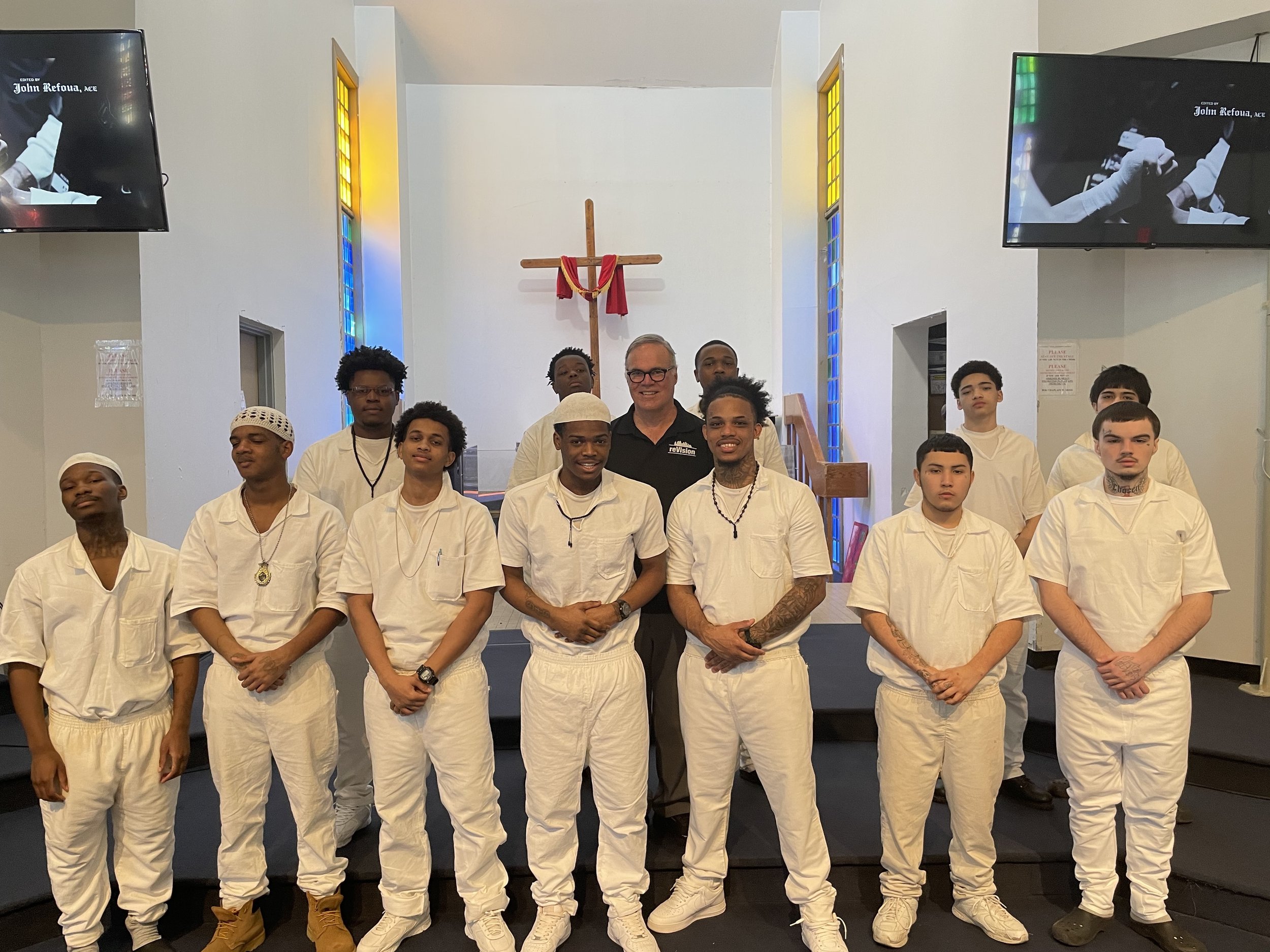
Juvenile Justice
reVision is reducing recidivism and improving outcomes for youth involved in the juvenile justice system
Many youth enter the juvenile justice system for minor infractions which puts them into a pathway that includes school suspensions, gang or criminal behavior, juvenile detention, dropping out, and this can lead to long periods of adult incarceration.
Prevention
Preventing entry or reentry into the juvenile justice system through advancing youths’ health and academic outcomes by improving school, family, and community connectedness is a team effort. It involves the Juvenile Probation Officers (JPOs), school administrators and police officers, family members, and community programs and organizations. Promoting trusting youth-adult relationships among this team is essential to youth avoiding entry or reentry into the system. Establishing a presence at juvenile facilities and on designated school campuses, and a trustworthy reputation among the youth and staff facilitates a stronger connection. In all efforts, the youth’s well-being must be prioritized. Both physical and psychological safety is important and all physical security measures should be balanced with positive behavior supports that foster resiliency, connectedness, and social competency. These activities encourage all referred youth to experience positive emotional development and to use non-violent means to resolve their personal conflicts. Such programs are natural bridges between interventions that focus on individual change and those seeking to establish a positive climate and culture at school and other community settings.

The inherent dangers in a detention stay of any length negatively impacts physical health, education, employment and economic outcomes. Evidence shows that interventions that aggregate troubled youth worsens their behavior problems and there is a clear link between the length of time that young people are detained and the psychosocial and developmental issues they confront.
Youth that are not put into a detention facility and are instead put on probation are at heightened risk for negative outcomes as well. The purpose of probation is to deter further criminal behavior, punish the offender, help provide reparation to crime victims and their communities, and provide offenders with opportunities for rehabilitation. Yet there is little evidence that probation as commonly practiced reduces the reoffending rates of youth. Further, many youth face barriers including lack of transportation and the need for substance abuse and mental health services, to successfully complete the terms of their probation. These youth are at heightened risk for a technical violation that can push them deeper into the system.
Mass incarceration, particularly of young people, comes at a high price. Besides the high financial burden, it also has societal costs: the economic, psychological and social tolls imprisonment takes on families and communities as well as the youth who are incarcerated. Juvenile system involvement often worsens mental illnesses, dramatically increases self-harm risk, and is associated with poorer long-term health. Studies further show a link between the length of time that young people are detained and the psychosocial and developmental issues they confront.
People coming out of prison lack opportunities to redirect their lives and have high rearrest rates. The way to reduce this drain on taxpayers and governments is through innovative diversion programs that involve the community.
The way to reduce disparities and improve outcomes for disproportionately impacted populations is through innovative community-based programs. In the Credible Messenger approach, communities work in conjunction with the justice system to restore individuals and change behavior. Compassionate and cost-effective compared to incarceration, it is continually proving successful in New York City and other jurisdictions, and has been successful in Houston, Harris County as well.
The majority of the participants in the Harris County Juvenile Probation Department’s Credible Messenger Pilot Program have not been re-arrested and many are continuing to participate in the program.
Keeping youth in their homes and communities while supporting them with meaningful services has proven to be a winning formula. It keeps families together, avoids traumatizing young people, saves taxpayers money, and leads to positive long-term outcomes. Keeping youth out of detention has also saved money that Harris County can now use to spearhead a deeper investment in communities most impacted by youth incarceration.


